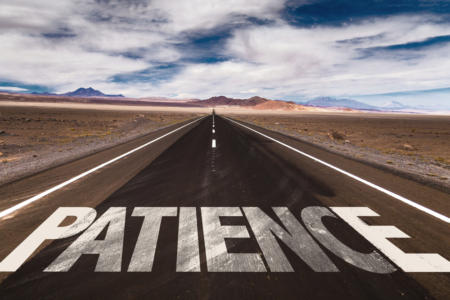Not long ago I read a thread on Twitter in which dozens of young writers were bemoaning the fact that they had not yet been published. They had set goals for themselves and worried that they had not yet met these goals as they were approaching 30, 35, 40. They had submitted and submitted—what was wrong?!
I worried for these writers. I wanted to calm them down, tell them to chill and meditate and continue doing the work. I wanted to tell them to resist thinking of writing as competitive sport, or as a career in which one ticks off benchmarks on a regular basis. I had so much to say to them that I could not respond adequately within the limitations of a tweet, or even a series of tweets.
Scads of writers graduate every year from MFA programs that, through craft seminars and workshops, offer them tools to sharpen their work, but rarely do these programs teach the more fundamental skills that will sustain a writer through a lifetime of producing the work and shepherding it successfully into the marketplace. Perhaps teaching these life skills lies beyond the skill set of most writing teachers. Perhaps these skills are best learned from parents at an early age. But they can certainly be enhanced at any age if a writer becomes alerted to their importance.
Hutzpah
To be a writer one must believe one has something to say that might be of interest to strangers. That requires hutzpah, not mere self-confidence, but, as Merriam-Webster says: “supreme self-confidence: nerve, gall.” You need that gall first in committing pen to paper daily, and much later this hutzpah must be summoned in the service of getting the work out to the public, finding an agent, a publisher, doing the promotional work. These activities require a kind of nerve that will tamp down self-doubt. Neglecting to activate the ferocity of your drowsing hutzpah is the quickest way to end a writing career.
Humility
The bravado and swagger associated with hutzpah must be activated, yes, but a simultaneous humility must be in play too. Good writing requires acute listening to the inner voice and to messages from humanity at large, and too much swagger and ego-centrism will impede and trivialize the work. You are one writer with one set of stories to tell, or poems to write. You are not the only writer, nor are you the best writer. No one is the best writer, despite what those with skin in the game want us to think. We are all out there on a particular perch offering our differing views about the world. Appreciate the writing community you are part of, and don’t develop a toxic ego. Try to resist thinking of yourself as superior to other writers. Humility will assist you as you interact with agents and editors, publicists and reviewers. You may be a wonderful writer, but you are never the first and only wonderful writer they have worked with.
Resilience
This trait—more frequently discussed than the others—is essential to cultivate for your own sense of self-preservation and happiness. Few fields entail regular rejection as much as the arts: writing, acting, dancing, visual art, filmmaking. To publish anything a writer must submit and submit and submit again, enduring repeated rebuffs along the road to acceptance. It can be discouraging—it is discouraging—and many writers are so done in by such rejection they stop writing altogether. For survival one must develop a tough skin, along with the understanding that rejection is almost never personal. When I was working as a screenwriter my partner and I noticed that the rejections initially depressed us for weeks, but after we’d been at it for a while, we could recover within a day. It is a matter of seeing the big picture and not blaming oneself. It can be useful to learn about the long list of rejections endured by numerous writers who are now household names. J.K. Rowling’s first Harry Potter Book was rejected twelve times before finding an editor; Stephen King’s story “Carrie” was rejected thirty times before being picked up by Doubleday. These stories abound. These writers were resilient enough to power forth.
Persistence
Perhaps the easiest way for me to bounce back from rejection is to keep writing. I am a believer in always having some work underway, a project into which I can immediately immerse myself. It helps me to shift my focus away from whoever is considering the work on submission. It keeps self-doubt in check. My most satisfying hours are spent in doing the work itself, the act of imagining and finding the right words to embody my thoughts. I have often said to myself that I would continue writing even if I were never to be published again. Try not to see publication as the end game, but the writing itself. Learn to savor the process. Persistence is also essential when it comes to finding an agent and a publisher. If you stop submitting, the odds of success plummet.
Patience
When I first read that Twitter thread I was struck by the impatience of those writers, and I was reminded of the excellent essay by editor Ted Solotaroff called “Writing in the Cold,” in which he says that, on average, it takes writers a good 10 years to find a voice and be ready for publication. It is not work that can be rushed. And why rush—what’s the hurry? Publication, it should be stressed, does not mean you have arrived. It doesn’t always change your life. There is always another goal on the horizon, another book to write. If you are writing only to be noticed and praised, you are dooming yourself to unhappiness. You may be noticed and praised briefly. If you’re very lucky your book might become a bestseller or a prize winner, but then you will return to being you, yet again starting a new work which may or may not develop as you hope it will. If you are writing for ego-stroking and fame, it may be helpful to step back and ask yourself why you have come to writing in the first place. The work will always reflect the consciousness of the person you are.
It’s doubtful that this quintet of personal qualities can be taught in MFA programs, but I think it can benefit all writers to consider how to maximize and reinforce these assets, in order to create durable and satisfying writing lives.


Add Comment